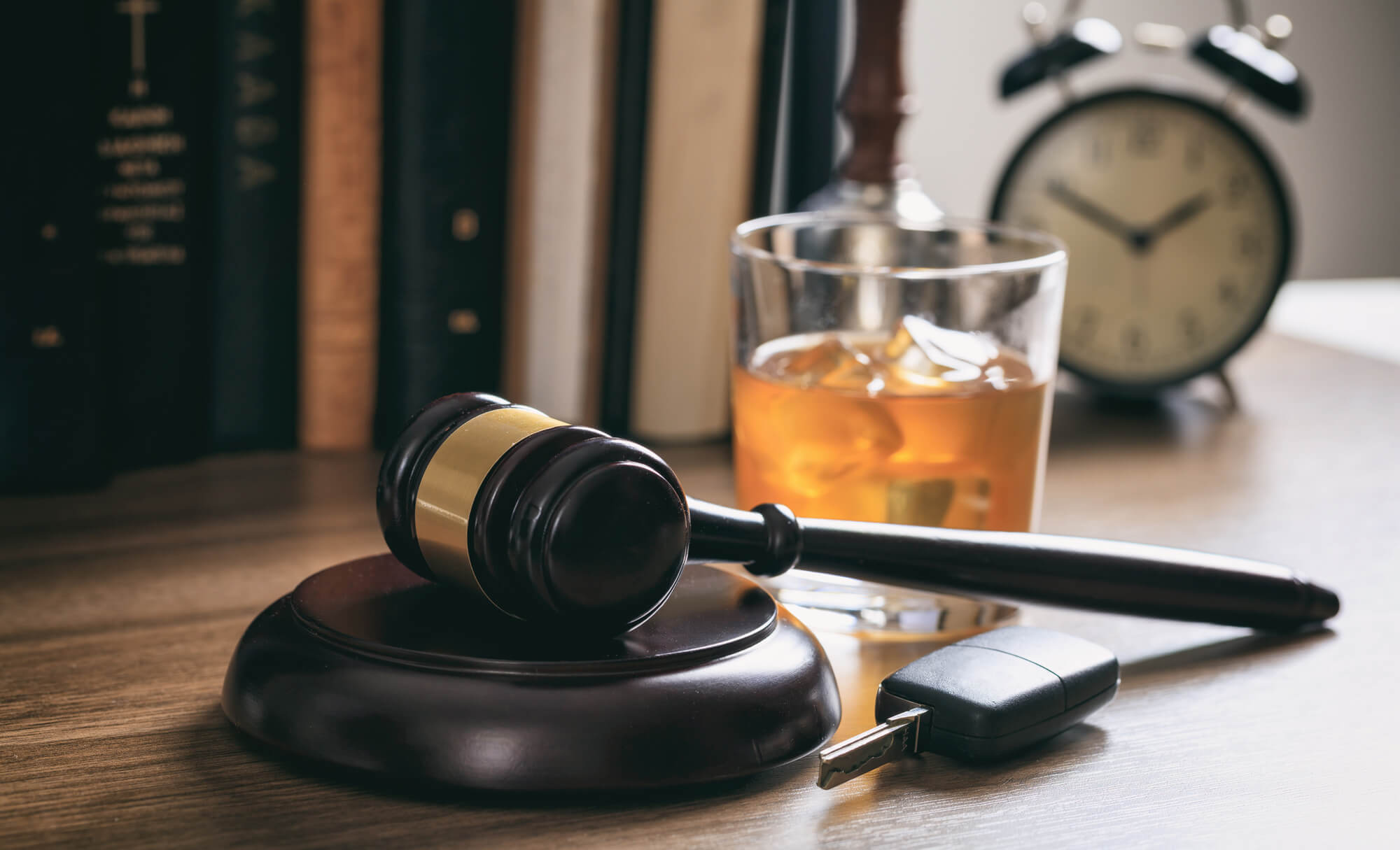If you’re dealing with a DUI suspension, you’re not just looking at a traffic violation—you’re looking at a legal, financial, and personal challenge that could ripple through every part of your life. A suspended license affects your job, your family, and your freedom to move. That’s why understanding the top strategies for defending against DUI suspension accusations isn’t just helpful—it’s essential. This guide dives deep into how people just like you have fought back, successfully navigated the legal system, and, in many cases, kept their driving privileges intact.
We’ll explore legal defenses, administrative loopholes, and courtroom tactics with real-life examples and a conversational tone that makes this complex topic easier to grasp. Whether you’re a first-time offender or facing enhanced penalties, these strategies give you the framework to protect your rights.

What Exactly Is a DUI Suspension?
Let’s start with the basics. A DUI suspension refers to the administrative or court-ordered suspension of your driver’s license after being charged with Driving Under the Influence. There are typically two tracks: an administrative suspension, which can happen automatically after a failed or refused breath test, and a court-ordered suspension, which kicks in after a conviction.
Many drivers are surprised to learn that their license can be suspended even before their day in court. That’s why acting quickly and strategically from the very beginning is crucial.
Real-World Example: The Silent Suspension
Consider Rachel, a 27-year-old graphic designer from Phoenix. She was pulled over after a night out with friends and blew a 0.09 on the breathalyzer. She was arrested for DUI, posted bail, and went home thinking she had a few weeks to figure things out. What she didn’t know was that the clock had already started ticking on her license. Because she didn’t request an administrative hearing within 15 days, her license was automatically suspended—before her trial even started.
This is one of the most common mistakes people make. Knowing how and when to respond is the first line of defense against a DUI suspension.
Strategy 1: Challenge the Traffic Stop
Every DUI case starts with a stop. But not every stop is lawful. If the officer didn’t have reasonable suspicion to pull you over, any evidence gathered afterward—including field sobriety tests or breathalyzer results—may be thrown out.
What Counts as “Reasonable Suspicion”?
- Swerving between lanes
- Running a stop sign
- Speeding
- Equipment violations (like a broken taillight)
- Erratic behavior, such as stopping unexpectedly
If your stop didn’t meet one of these criteria, your attorney can file a motion to suppress the evidence. If successful, the DUI charge and therefore the DUI suspension—might be dropped.
Real Case: The Rolling Stop That Wasn’t
In Dallas, a man named Trevor was stopped for what the officer claimed was a rolling stop at a red light. His dashcam footage showed otherwise. His lawyer presented this evidence during a pretrial hearing, and the judge ruled the stop unlawful. All charges were dropped, and Trevor’s license was reinstated immediately.
Strategy 2: Contest the Chemical Test Results
Another key way to fight a DUI suspension is to question the accuracy and legality of your chemical test—whether breath, blood, or urine. These tests are not always reliable, and procedural errors can invalidate the results.
Potential Flaws in Chemical Testing:
- The breathalyzer machine wasn’t calibrated
- The test was administered by an unqualified officer
- Chain of custody was broken during a blood test
- Medical conditions (like GERD or diabetes) skewed the results

If any of these apply, your attorney can argue that the test was faulty, and therefore shouldn’t be used to justify a DUI suspension.
Story: The Diabetic Defense
Elena, a nurse from Austin, blew a 0.10 despite only drinking one glass of wine. Her attorney brought in a medical expert who explained how diabetes can produce acetone, which breathalyzers sometimes misread as alcohol. Her suspension was lifted after the evidence convinced the judge of a possible false positive.
Strategy 3: Fight the Administrative License Suspension (ALS)
Many people assume that once the DMV suspends your license, it’s game over. But in most states, you have the right to request a hearing to contest the administrative DUI suspension. This hearing is separate from your criminal trial—and often your first opportunity to make your case.
Key Points to Know:
- Deadlines are tight—often just 7 to 15 days after arrest
- The hearing focuses on whether the officer had probable cause
- You can bring witnesses, present evidence, and cross-examine the arresting officer
This hearing can lead to reinstatement or a stay of suspension—allowing you to keep driving while your criminal case unfolds.
Strategy 4: Request a Hardship or Occupational License
Let’s say your license is already suspended. That doesn’t mean you’re out of options. In many states, you can apply for a restricted license—also known as a hardship or occupational license—that allows you to drive to work, school, or medical appointments.
Requirements Typically Include:
- Proof of employment or school enrollment
- SR-22 insurance
- Installation of an ignition interlock device
- Completion of a DUI education course
These licenses don’t erase your suspension but can provide a lifeline while you fight the charges. Courts often approve them when they see good faith efforts to comply with the law.
Strategy 5: Dispute the Field Sobriety Test
If your DUI suspension is based on field sobriety tests, challenge their validity. These tests are notoriously subjective, and many sober people fail them due to fatigue, nerves, or health conditions. Even weather conditions and footwear can impact your performance, making the results less reliable than they appear on paper.
Common Field Tests Include:
- Walk-and-turn
- One-leg stand
- Horizontal gaze nystagmus (eye movement)
Each of these tests relies heavily on the officer’s interpretation, which opens the door to human error and bias.
Key Questions to Ask:
- Was the test administered on level ground?
- Was the lighting adequate?
- Did the officer explain the test clearly?
- Did a medical condition affect performance?
You’ll also want to examine whether distractions like passing traffic or uneven pavement may have influenced your ability to complete the test properly.
If the officer’s report relied heavily on field test results, undermining their reliability can weaken the case and affect both the criminal charge and the DUI suspension. Challenging this evidence effectively may lead to reduced penalties or even dismissal of charges.
Strategy 6: Demonstrate Lack of Probable Cause for Arrest
Even if the stop was legal and the officer suspected alcohol use, that doesn’t automatically mean an arrest was justified. The officer must have probable cause to believe you were impaired. Without sufficient evidence of impairment at the scene, the arrest can be contested in court.
This can be based on your speech, behavior, test results, or other signs. If the evidence is weak or inconsistent, your attorney may argue that the arrest itself was improper—potentially invalidating the license suspension. Establishing this early on can prevent the case from gaining momentum against you.

Strategy 7: Highlight Violations of Your Rights
Sometimes, the best defense isn’t about the evidence—it’s about your rights. If law enforcement failed to read your Miranda rights or conducted an unlawful search, that may open the door to suppression of key evidence. These errors are more common than many people realize and can significantly alter the outcome of your case.
Examples of Rights Violations:
- Denial of right to counsel
- Unlawful search of your vehicle
- Coerced statements or confessions
- No warrant for blood draw when required
Any of these violations can create grounds to file a motion to suppress evidence, which, if granted, can lead to dismissal of the DUI suspension case altogether.
These violations can weaken the prosecution’s case and offer grounds to challenge the DUI suspension. An experienced DUI attorney knows how to spot these red flags quickly and build a defense around them.
Strategy 8: Use Expert Witnesses
Expert witnesses can tip the scale in close cases. Whether it’s a toxicologist explaining how BAC is calculated or a former officer testifying about flawed procedures, expert testimony can cast doubt on the state’s evidence. Jurors are more likely to question the prosecution’s version of events when credible, neutral experts provide alternative interpretations.
Expert testimony is particularly helpful when the case hinges on complex issues like equipment malfunctions or medical conditions that mimic intoxication. This scientific perspective can often break the tie in your favor and show the court that reasonable doubt exists.
When to Hire an Attorney
Here’s the truth: DIY defenses rarely succeed. If you’re facing a DUI suspension, a qualified DUI attorney is your best bet for saving your license and possibly beating the charge altogether. They know the local court system, the judges, the prosecutors—and how to navigate the process strategically.
A DUI Attorney Will:
- File the necessary paperwork to stop your suspension
- Represent you at the ALS hearing
- Identify weak points in the prosecution’s case
- Negotiate for lesser penalties or alternative programs
- Fight for license reinstatement as early as possible

A good attorney knows that every DUI case is unique and builds a defense tailored to your facts, history, and circumstances.
Final Thoughts: You Have More Control Than You Think
DUI suspensions can feel like a runaway train—but you don’t have to let it derail your life. From challenging the stop to questioning the test to securing a restricted license, there are proven, legal strategies for pushing back. And while not every case can be dismissed, many can be reduced, mitigated, or redirected toward rehabilitation instead of punishment.
The key is action. The sooner you understand your rights and options, the better your chance of defending against a DUI suspension successfully. What feels like the end of the road could just be the start of a smarter, more strategic journey.


